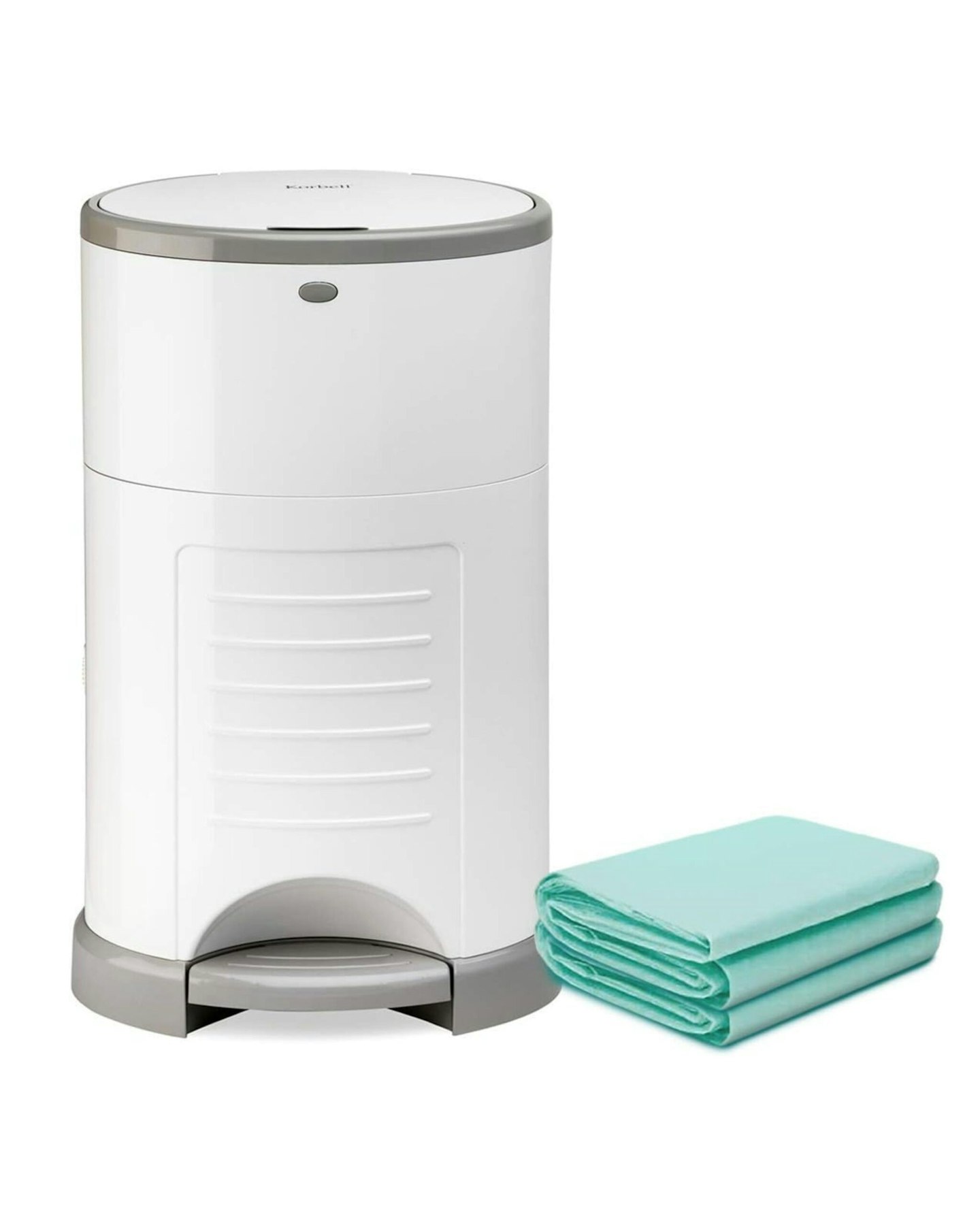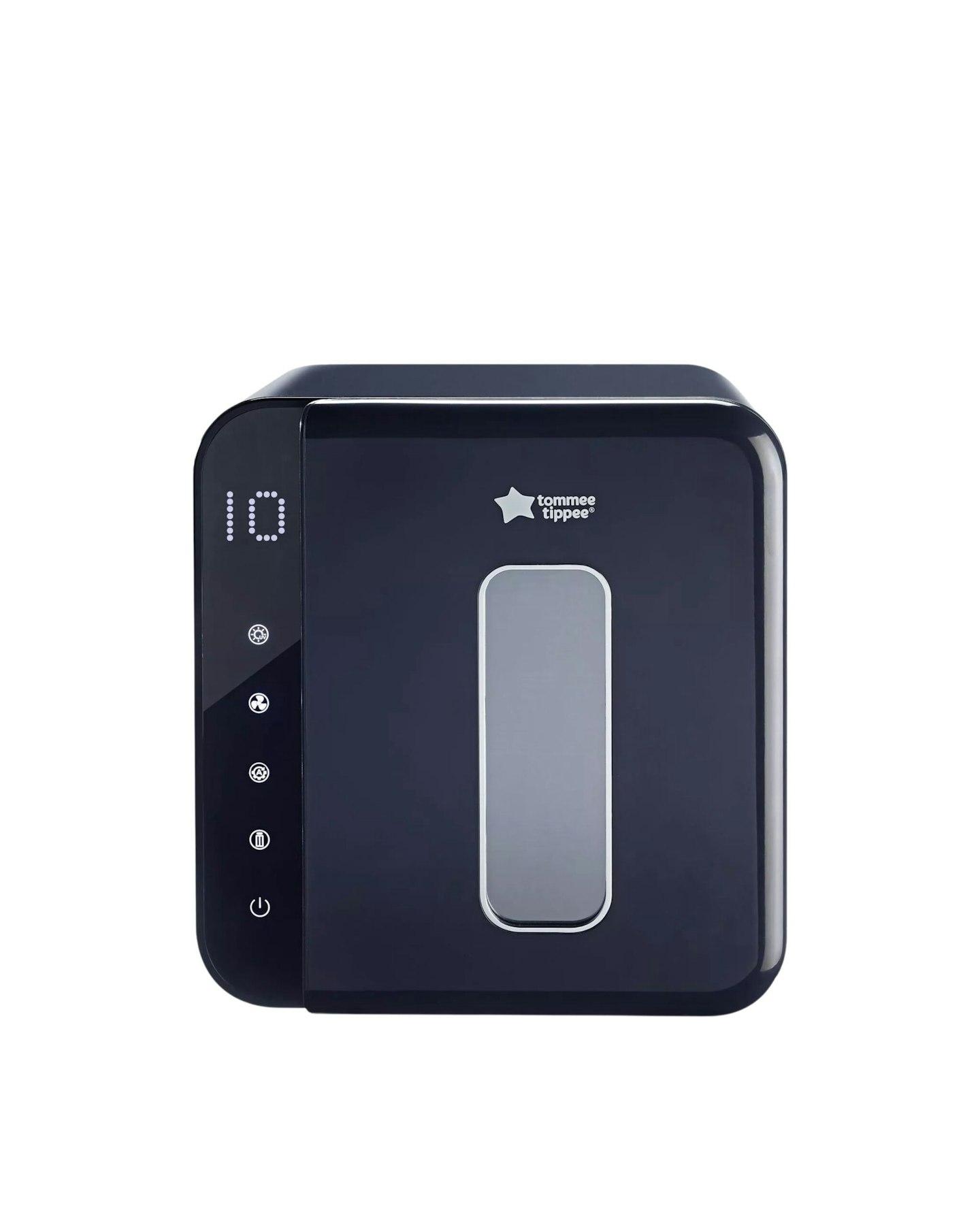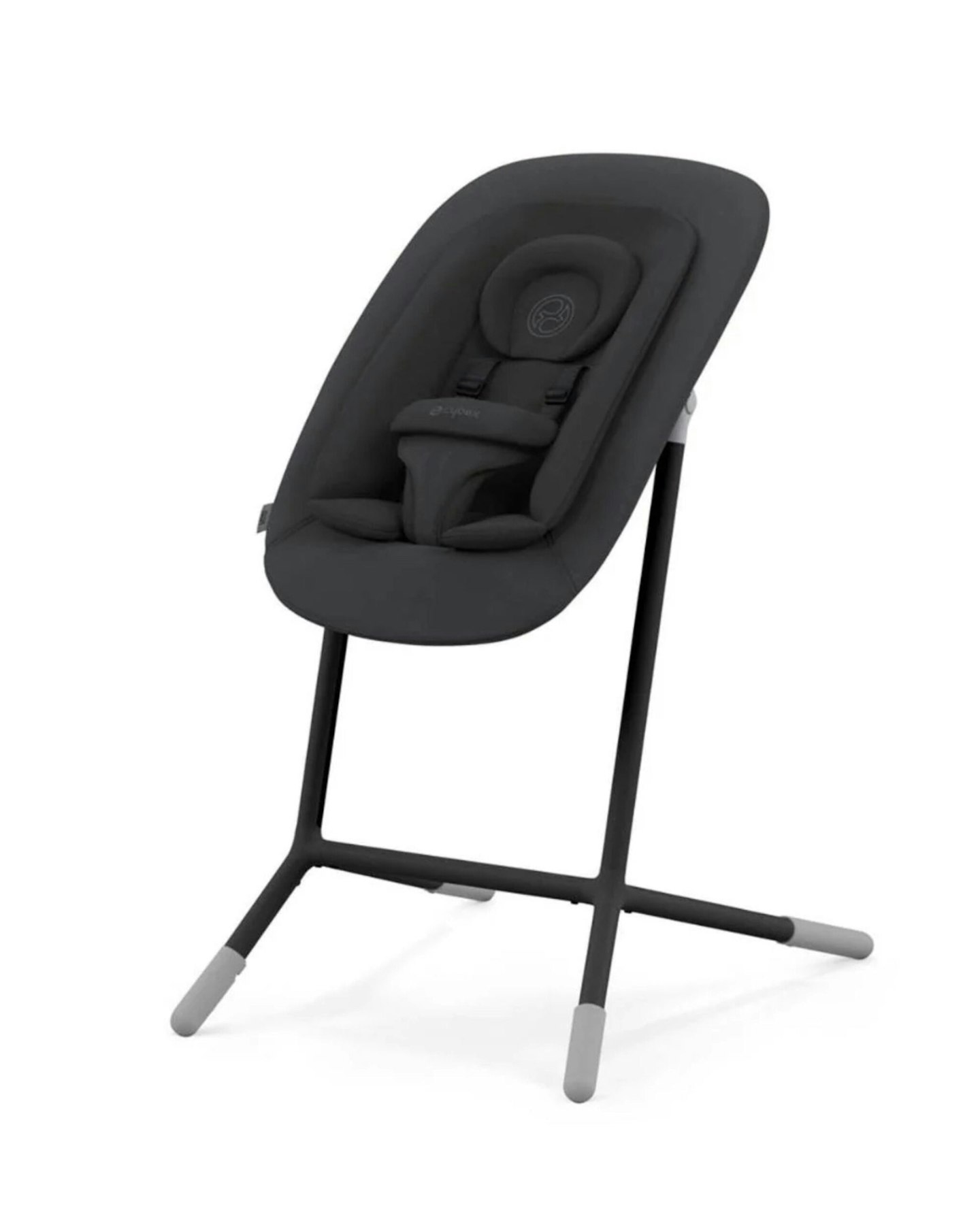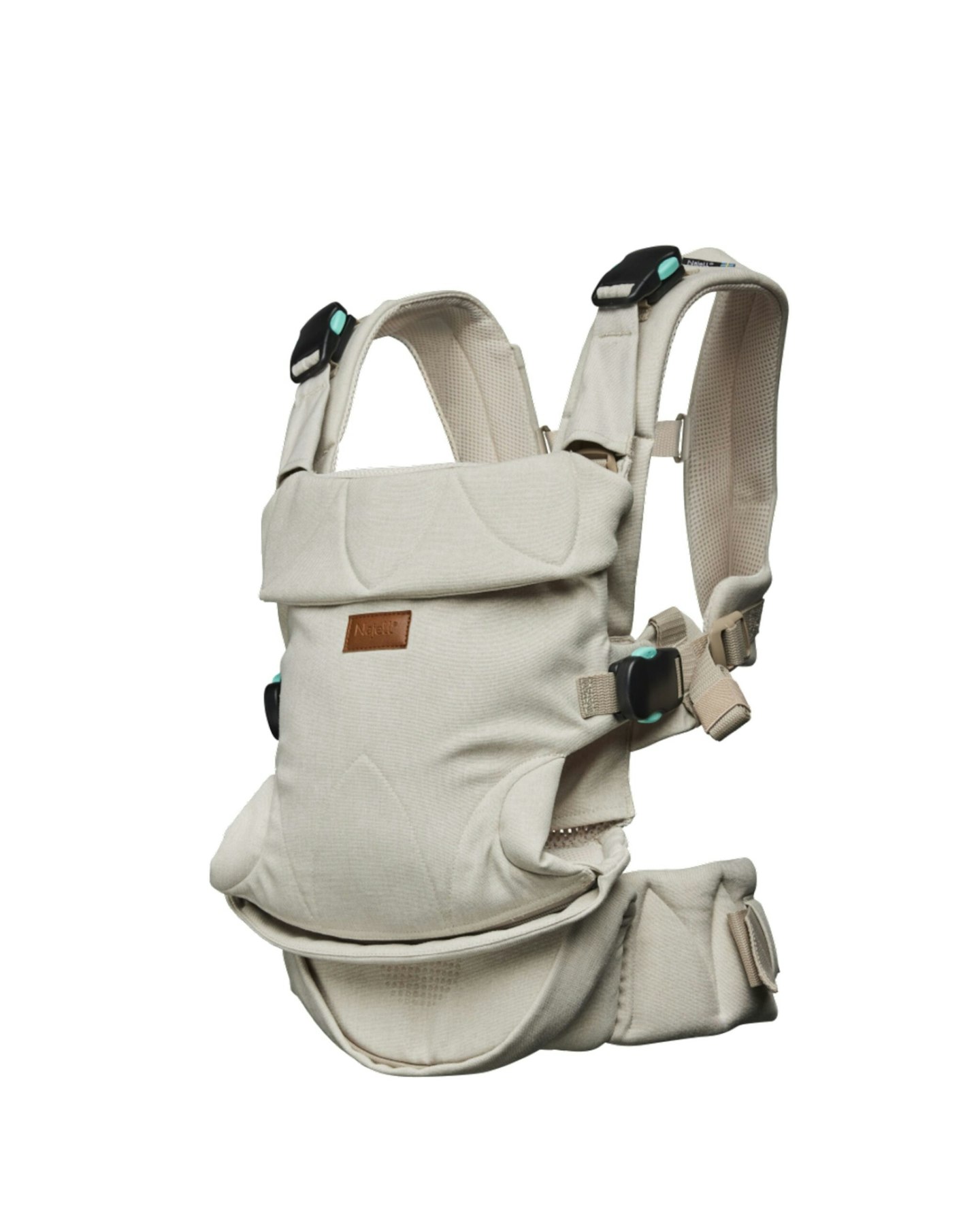Everyone loves celebrating the miracle baby, but how often do we stop to think about what the NICU mum has been through? Social media’s filled with those sweet photos – tiny fingers holding bigger ones, first cuddles, milestone moments – but the story behind those pictures rarely gets shared. The sleepless nights. The constant worry. The emotional weight. For every NICU success, there’s a mum who’s fought quietly, whose strength goes unnoticed, and whose journey doesn’t end when she leaves the hospital.
In this interview, shared for Maternal Mental Health Week with the theme “Your voice, your strength,” Made in Chelsea star Emily Blackwell opens up about the 53 tough days she and her daughter Eva spent in the NICU, a time she calls the hardest of her life. She’s using her voice to share the side of the story we don’t often hear.
The day everything changed
Emily didn’t expect to give birth on Halloween – especially not at 29 weeks. But that’s exactly what happened.
It started with a small bleed that took her to Chelsea and Westminster Hospital. The baby’s heartbeat was fine, she wasn’t having contractions, and everything seemed under control. But when doctors checked her cervix, they found red blood. Just to be safe, they kept her in for 24 hours.
“I felt fine,” Emily says. “I wasn’t in pain, the baby was moving, and her heartbeat was strong.” She was just about to be discharged when she mentioned a bit of backache, nothing major, just the usual pregnancy discomfort. But that small comment ended up changing everything.
Over the next day, the backache shifted to the front. Still, Emily didn’t think much of it. “I thought it was Braxton Hicks,” she says. “I even told myself, If I can sleep through this, it can’t be labour.”
By the next morning, though, the pain had ramped up. She took a painkiller and called the hospital, who told her to come in and when she did, she found out she was already 3cm dilated.
Things moved quickly. Doctors gave her steroids to help the baby’s lungs and magnesium to support brain development. They said it might slow down, labour could take hours, maybe even days. But Emily had a feeling.
“I just knew she was coming.”
Two hours later, baby Eva arrived.
There was no time for pain relief. Everything happened fast. But Eva came out crying, and the neonatal team was ready. “There was so much going on, but I remember thinking, You’re going to be fine.”
Emily hadn’t done antenatal classes. She hadn’t even had her baby shower yet. “I told the midwife I had no idea what I was doing,” she says. “She just said, ‘It’s okay, I’ll teach you how to push.’ And somehow, I did it.”
What no one tells you about premature birth
When Emily gave birth to her daughter Eva, her world was turned upside down. In a matter of hours, she went from a healthy pregnancy to life in the Neonatal Intensive Care Unit– a reality no antenatal class could have prepared her for.
Eva was born more than 10 weeks early. Like 85% of women who deliver prematurely, Emily never got an explanation.
Despite ongoing research, most preterm births still happen without warning. There have been no major new treatments introduced in the last 50 years, and too little is invested in making childbirth safer through medical science, according to Borne, a UK medical research charity.
"My pregnancy was low-risk, I was healthy and active. It completely took me by surprise. They tested for infections, checked my placenta, it all came back clear. That’s something I struggled with mentally, never knowing why," she says.
In Emily’s case, the only clue came in the form of a severe flu. "I’d had a really bad flu that week, coughing so violently it hurt my stomach and back," she shares. "I even said to the doctors, ‘I think the coughing triggered labour.’ They laughed and said it wasn’t related, but I still wonder."
What she does know is that listening to her instincts made all the difference. “That intuition – we have it for a reason. Looking back, I’m really glad I went back to the hospital," Emily says.
53 days in NICU and finding strength in survival
"It’s so hard to describe unless you’ve been through it," says Emily, reflecting on the 53 days she and her baby spent in the NICU. Adding, "Nothing prepares you. But I found strength I didn’t know I had."
She describes the NICU as intense and unfamiliar, more like a spaceship than a hospital. "You’re not in a quiet, private room," she says. "It’s a shared space full of premature or unwell babies, with a constant hum of alarms and machines." Even when the alarms weren’t for her own baby, they were jarring. "People don’t talk enough about the emotional toll of just being in that environment every day."
It quickly became about survival – physically, emotionally, mentally. "You just get through it, day by day,” she says.
Emily stresses the importance of rest and self-care, something many new parents overlook. "You need to be healthy and strong for your baby,” she says. “And don’t compare your journey to anyone else’s – every baby is different."
One moment that stood out came from a NICU nurse. "She told me, ‘You have to trust her. She’s a little fighter.’ That really stuck with me," she shares.
Her partner Jordan Oldershaw was with her throughout, offering constant support.
On quiet moments and the new rhythm of motherhood
Bringing Eva home marked the beginning of a different kind of learning curve.
“Everyone said to me, ‘Oh, the newborn trenches, how awful.’ But when I got Eva home, my body felt calm. I was nervous in other ways, like not having the nurses or doctors, but I felt calmer. My body knew we were back together again," she shares.
Emily lights up when talking about her favourite part of the day.
“It has to be in the mornings when she wakes up and gives me a big smile. Even if she’s kept me up four times in the night, she smiles, and it makes up for it.”
Their days aren’t structured to the minute, Eva’s still on her corrected age of three months, so it’s all about the basics: feed, nap, play, repeat.
And what gets Emily through the tough days?
“Her, to be honest. She’s kept me going because she’s so amazing. She’s so clever. So alert. She’s a little miracle," Emily shares.
The biggest shock? The life adjustment
For Emily, the hardest part wasn’t just the NICU or the birth – it was what came after.
She describes the adjustment to motherhood as a total life shift. Everything changes: your routine, your relationship, your identity. "People can tell you, but you don’t really get it until you’re living it," she says. "The adjustment has been the hardest part… everything becomes about your baby."
Her relationship with partner Jordan deepened under the pressure. She watched him take on the role of caregiver, father, and business owner all at once. "If we’ve managed to go through what we’ve been through, I feel like we can conquer anything," she says.
That shared experience brought a new level of understanding. "We both have a newfound respect for each other,” she says. "I think he sees what mothers go through now – how much we give up: our bodies, our careers, our lives."
Of course, some things have had to take a backseat. "We don’t really go on date nights anymore," she admits. "It’s not just about us now, it’s also about Eva. And that takes adjusting."
But she’s hopeful. "Once she’s a bit older, we definitely will. I think it’s extremely important to still have those date nights, those weekends away, that time for just the two of you."
On carving out time for herself and the support that makes it possible
Postpartum changes can take a real toll, and Emily is refreshingly honest about how they’ve impacted her confidence and sense of self.
"You don’t feel like yourself – your hair falls out, your body’s changed, your breasts aren’t the same," she says. "But just a bit of pampering can make a huge difference."
For her, it’s about small rituals that help reconnect with who she was before becoming a mum. "Whatever makes you feel good, do it. An hour massage, a blow-dry – just something that makes you feel better. As a mum, you’re often last on the list."
One of her non-negotiables is Pilates. "Twice a week, whether it’s at the weekend or during the week, I go to a class. It’s only up the road, so I don’t feel far from Eva, but it’s just an hour to take a breath and do something for myself," she shares.
She’s also quick to credit the support that makes this possible. "We’re really lucky. I get help from my mum twice a week, she watches Eva while I work or do something just for me."
On social media and “perfect” motherhood
Emily knows how curated motherhood can look online and how that can affect other mums.
"Online can make things look really easy. It paints motherhood as this perfect picture, and people might think, ‘Maybe I’m not doing a good job.’"
She recalled one moment in particular.
"I posted a reel, my hair was washed, I had makeup on and someone commented, ‘How do you look that good? It’s so unrealistic.’ But that’s just how I choose to spend my time. Some mums nap when their babies nap. I don’t, I put on makeup, I do work. It’s whatever works for you," she stresses.
As for the opinions of strangers?
"I’ve always had strong boundaries with social media. I don’t care what people think unless it’s my mum or close friends. If someone doesn’t know me, their opinion doesn’t matter," she says.
On the best buys that made new mum life easier
Of course, we couldn’t resist asking Emily about the products that really helped her out during those early months. From keeping things tidy to having Eva close, here are the must-haves that made life as a new mum a bit easier.
1.
Korbell Classic Nappy Bin
 Amazon
Amazon “I really recommend a nappy bin, the special ones, I think they’re called Korbells. Just makes life so much easier.”
This hygienic, hands-free bin is a lifesaver in the early days. The 16-litre size holds up to 45 nappies, with a double-sealing system that locks in odours and lightly scented biodegradable liners to keep things fresh. It’s easy to use with a simple foot pedal, and the economical continuous liner system means less waste and mess.
 Amazon
Amazon redirect.viglink.com
“The Tommee Tippee UV steriliser, love that. Super handy.”
With no need for harsh chemicals, steam or heat, this steriliser uses UV light to kill 99.9% of harmful bacteria and viruses. It can sterilise and dry six bottles in just 35 minutes, and keeps them sterile for up to 24 hours in storage mode. It’s energy efficient, fits most bottle brands, and is a real time-saver.
 Boots UK
Boots UK www.boots.com
“The Cybex high chair with the newborn attachment has been another really good one.”
This award-winning highchair is designed to grow with your child. From newborn days to toddler years and beyond, the ergonomic design and adjustable attachments make it a long-term, sustainable choice. Stylish and smart, it blends seamlessly into any home.
 Najell
Najell “The Najell baby carrier, it’s Swedish. Eva loved it as a newborn. I could carry her around the house while she napped and still get on with work or cooking. That was brilliant.”
Comfortable for both parent and baby, this minimalist, high-quality carrier offers five carrying positions, including a pure hip seat for quick ups and downs. Easy one-hand fastenings and sleek Scandinavian design make it a practical and stylish everyday essential.
The lesson she’ll carry forever
Emily doesn’t sugarcoat the challenges but she knows she’s come through stronger.
"Don’t be too hard on yourself. It gets better," she says.
And most of all?
"Gratitude. That’s the biggest thing I’ve learned. You come out of it with this enormous gratitude, for life, for health, for the smallest things. You stop taking anything for granted," Emily concludes.
About the author
Anne Lora Scagliusi is a Senior Digital Writer at Mother & Baby. She is a Scotland-based journalist with over a decade of international writing experience, specialising in women’s health, maternal mental health, and wellness. Her work has been featured in Vanity Fair, Marie Claire, and Glamour and has appeared on several Vogue global editions. She is a mum to one very energetic bambino and splits her time between Italy and the UK.
